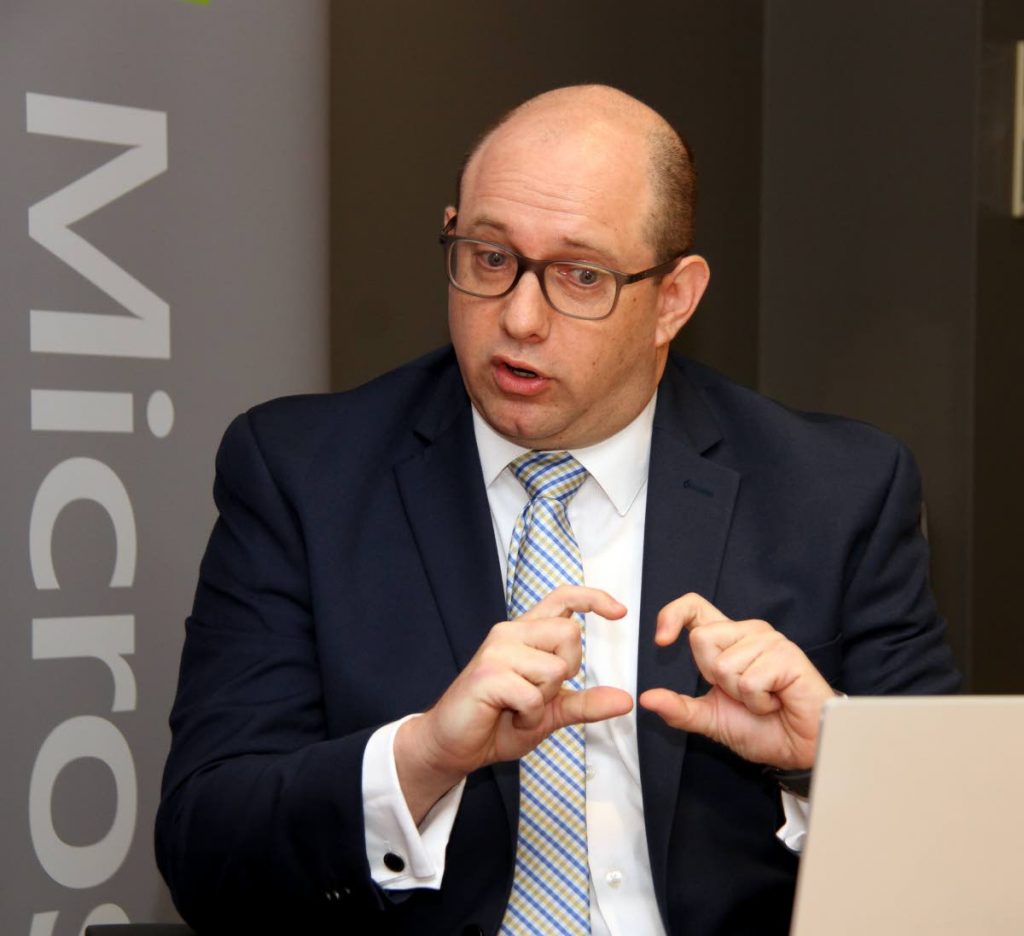Microsoft offers US$75m to do-gooders

DEVELOPERS, non-government organisations (NGOs) and people who want to do good in the world can access Microsoft's Artificial Intelligence (AI) for Good grant programmes called AI for Earth and AI for Accessibility.
Newsday interviewed Herbert Lewy, general manager for Microsoft Caribbean about the grants on Thursday at the TT Microsoft Head Office on Mucurapo Road.
The grant programme can be accessed by developers and anyone with a great sustainable environmental or accessibility idea.
Lewy said, "Technology is for everyone. So if you have the problem and bring the potential scenario and solution and we will provide the AI tools."
AI for Earth has a US$50 million global grant that seeks projects focusing on four pillars: agriculture, biodiversity, climate change and water. The grant is available in tranches running from 2017 to 2021.
According to the Microsoft website, "AI for Earth grants provide access to advanced Microsoft Azure cloud computing resources to support projects that change the way people and organisations monitor, model, and ultimately manage Earth’s natural systems."
People can access two grants: Data labelling services and Azure compute credits. The project can apply to either or both of the grants.
Microsoft accepts proposals on a rolling basis and reviews them four times a year. The next evaluation of proposals will be on April 8 at 11.59 pm Pacific Time.
Globally, there is also a US$25 million grant available for five years starting in 2018 for AI for Accessibility. The grant will be available in tranches running from 2018 to 2022.
According to Microsoft's website, AI for Accessibility is meant to amplify human capability by empowering people with disabilities with AI tools. These tools can support independence and productivity to improve the way people who are disabled live.
Facial recognition technology that helps read emotions of people who are autistic is one of the examples Lewy used on how AI could help people improve their lives.
AI for Accessibility seeks programmes that assist with projects to help improve employment, a person's daily life or their communication and connection.
Applications for AI for Accessibility are open on a rolling basis with grants awarded quarterly.


Comments
"Microsoft offers US$75m to do-gooders"